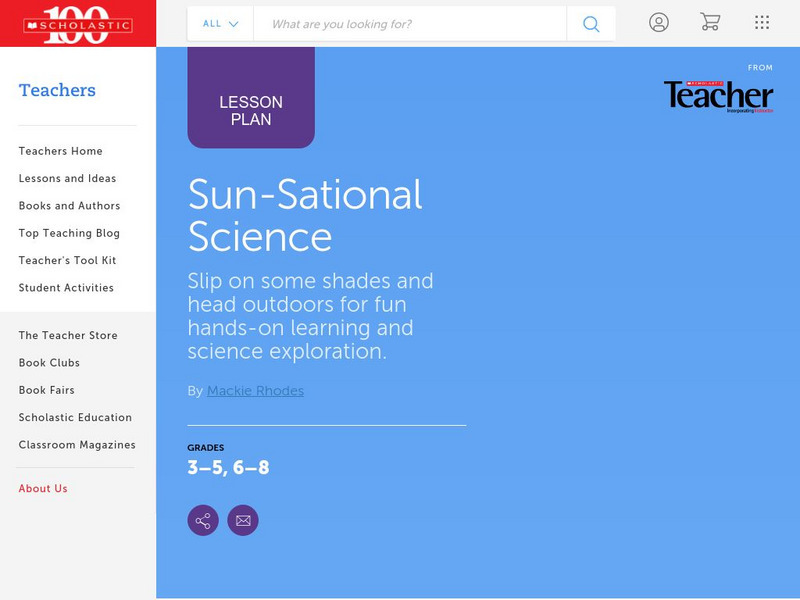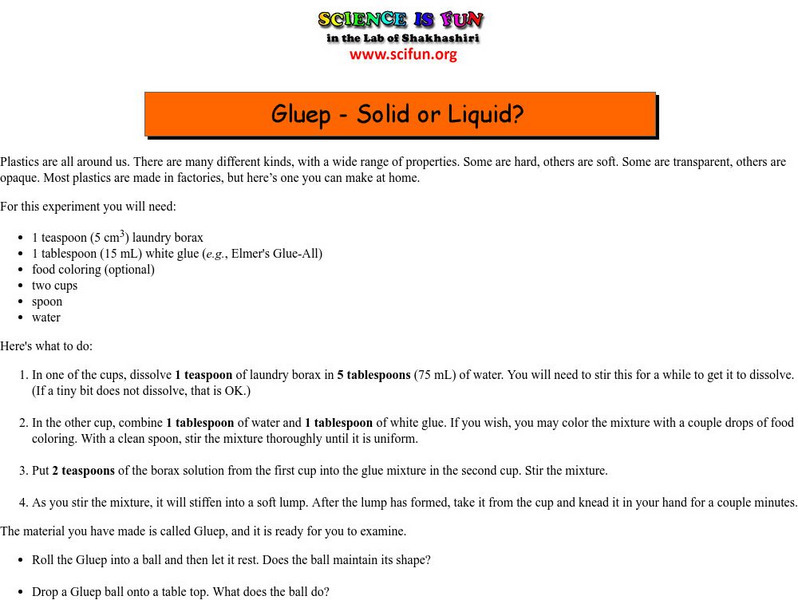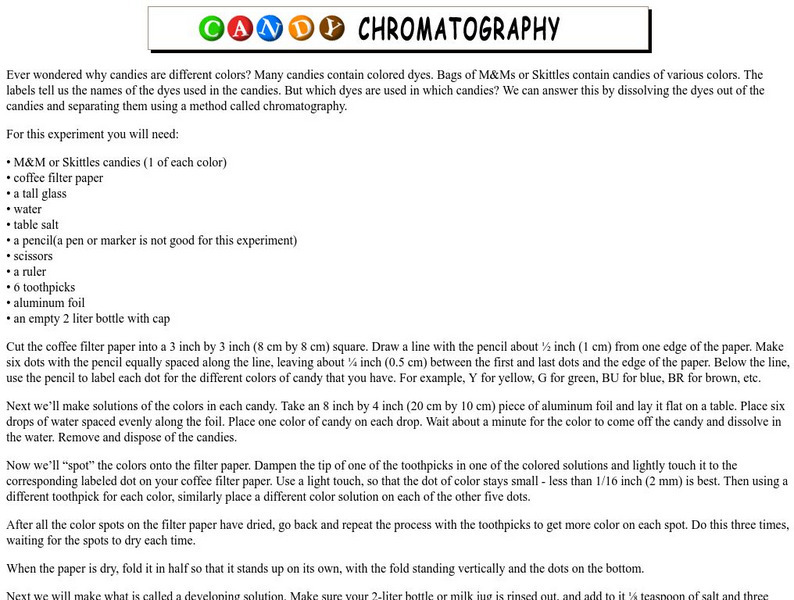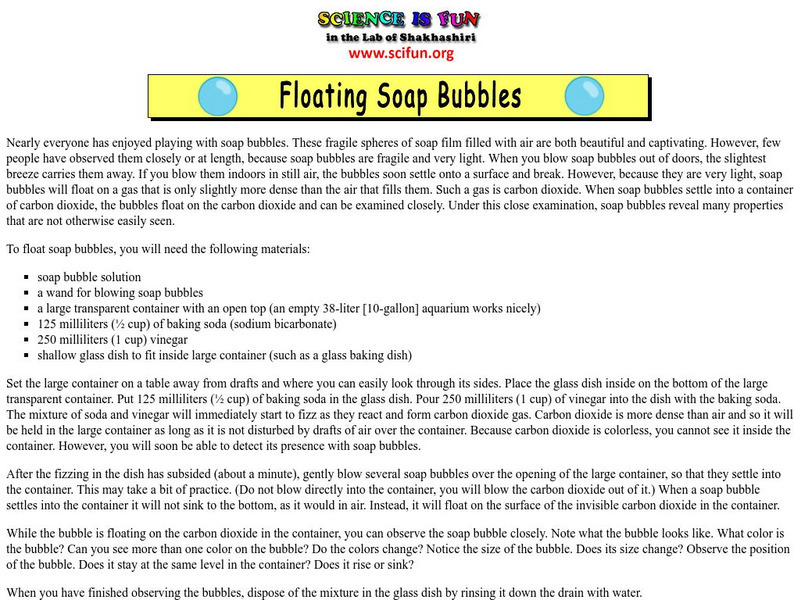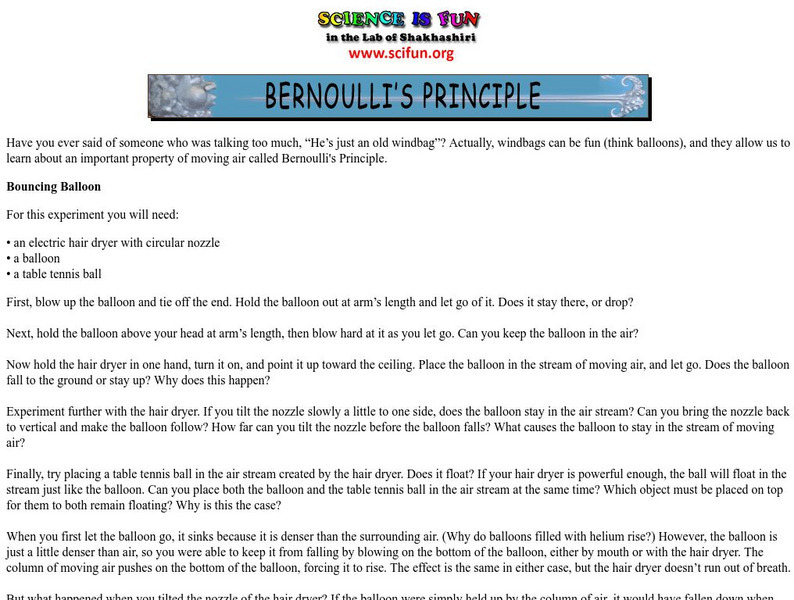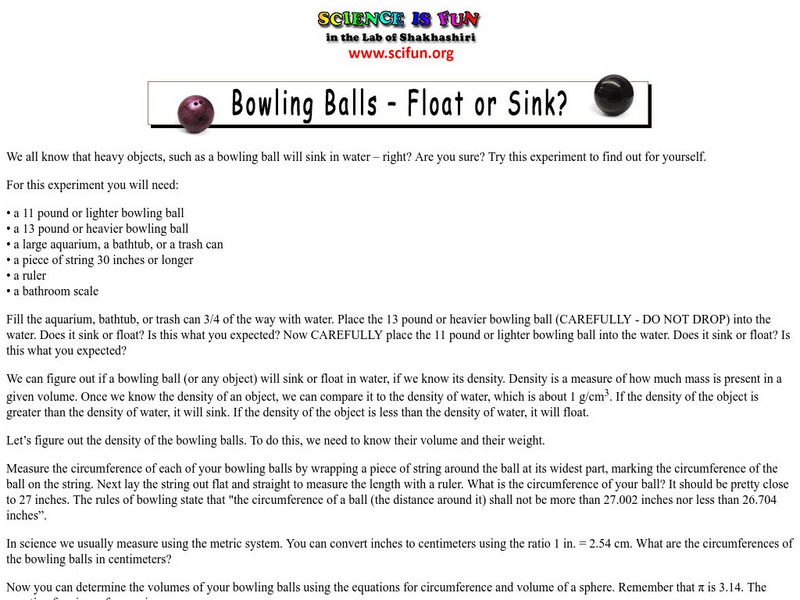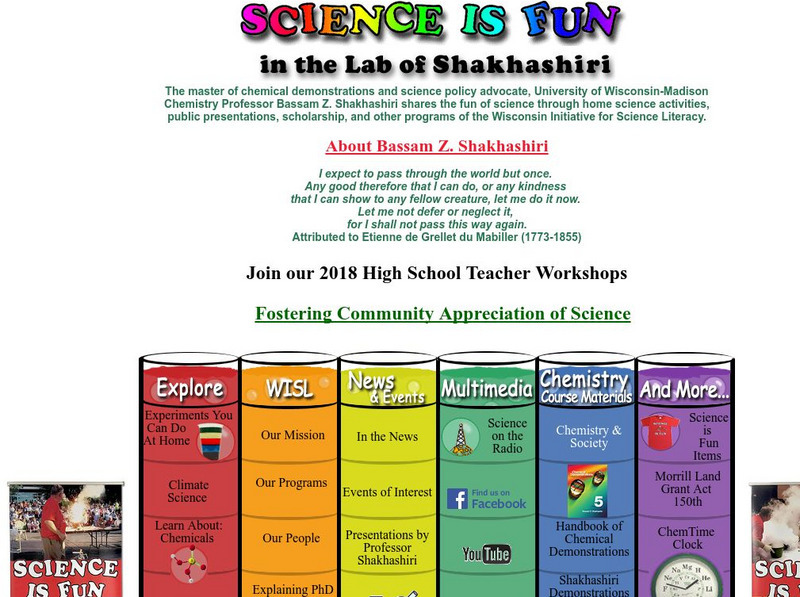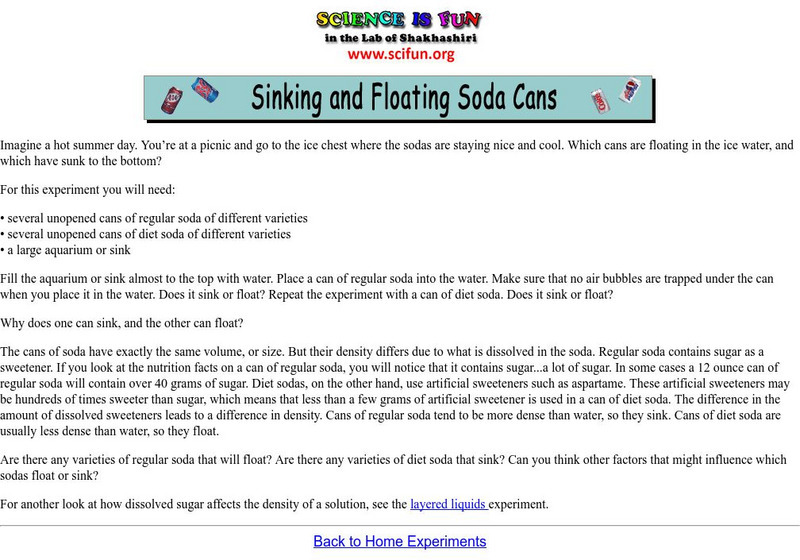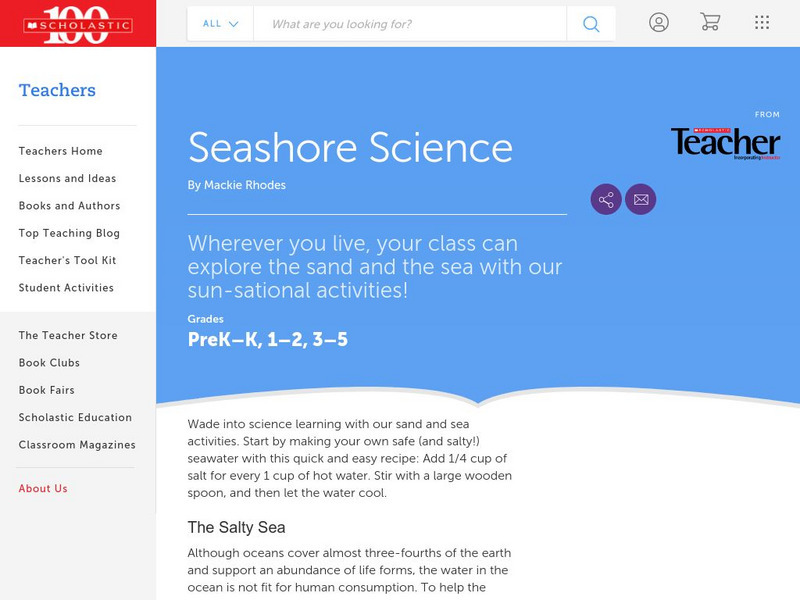Hi, what do you want to do?
Other
Ciencia Divertida (Fun Science): Pequenos Cientistas
Fun Science is designed to teach scientific experiments to children ages 3 to 16 in an informal and entertaining way. Click on "pequenos cientistas" to watch animated experiments and to access scientific facts and quizzes. The games...
Scholastic
Scholastic Instructor: Sun Sational Science
Discover more about the sun when you visit this educational resource. The content of this site includes solar fun facts, experiments, and activities.
Science is Fun
Science Is Fun: Gluep Solid or Liquid?
In this experiment, students create a polymer substance called Gluep, then investigate its properties. Includes a detailed explanation of how the polymer molecules bond together to form the plastic.
Science is Fun
Science Is Fun: Put a Shine on It
An experiment investigating how to remove the tarnish from silver. Includes an explanation of how the silver becomes tarnished, and the chemical reaction taking place when the shine is restored.
Science is Fun
Science Is Fun: Candy Chromatography
In this experiment, you learn about chromatography when you separate the dyes in candies like M & M's and Skittles to see how many dyes are in each color.
Science is Fun
Science Is Fun: Floating Soap Bubbles
In this experiment you learn how to generate carbon dioxide inside a container, and float soap bubbles above the gas. Once the bubbles are suspended, it is possible to observe them closely, which is normally very difficult to do....
Science is Fun
Science Is Fun: Chemiluminescence Cool Light
An experiment in chemiluminescent reactions using a commercial Lightstick. As the temperature conditions are changed, students observe changes in the Lightstick and record their observations.
Science is Fun
Science Is Fun: Bernoulli's Principle
An experiment with a balloon and a wind tube that investigate how Bernoulli's Principle applies to a stream of moving air.
Science is Fun
Science Is Fun: Rubber Bands and Heat
An experiment to investigate the thermal properties of rubber by studying its behavior in different scenarios. A discussion of how entropy explains what is observed is provided.
Science is Fun
Science Is Fun: Making Things Glow in the Dark
Try this experiment to learn how to make things glow under a black light, why this happens, and some applications of this phenomenon.
Science is Fun
Science Is Fun: Lumpy Liquids and Squishy Solids
An experiment in viscosity using cornstarch and water. Includes a detailed explanation of viscosity, of Newtonian and non-Newtonian fluids, and examples of different fluids that fit into each category.
Science is Fun
Science Is Fun: Bending Water
An experiment where static electricity is used to 'bend' a stream of water flowing from a faucet. Includes a detailed explanation of how this works.
Science is Fun
Science Is Fun: Conducting Solutions
An experiment where one must first build a conductivity tester, then use it to test how well water conducts electricity when different materials found around the home are each dissolved in it.
Science is Fun
Science Is Fun: Bowling Balls Float or Sink?
In this experiment, you test whether two different bowling balls will float or sink, then determine the density of each of the balls to see if they are less than that of water.
PBS
Pbs Teachers: Reel Science: Cool Experiments
Eight student videos are featured on this site by Reel Science. Each video presents a separate experiment that can be adapted for both class use, a science experiment, or a fun activity to explore at home.
Science is Fun
University of Wisconsin: Science Is Fun
Professor Bassam Z. Shahaskin of the University of Wisconsin home provides "science activities, demonstration shows, videos, and books" that aim to make science "fun" for adults and children.
Exploratorium
Exploratorium: Science of Music: Accidental Scientist
Learning about the science of music is what this site is all about. With clever activities that lead to writing, mixing, and experimenting with music; with videos that explain tuning, stepping (or rhythmic movement), instrument building,...
Science is Fun
Fun Science: Sinking and Floating Soda Cans
Why do some pop cans float in water while others don't? This easy experiment is a great example of the principle of density.
Scholastic
Scholastic Instructor: Seashore Science
Come and learn with this incredible seashore science resource. The content includes fun facts, experiments, reproducible activities, resources and more.
Science Fun for Everyone
Science Fun: Ping Pong
Learn about air pressure with this easy science experiment that is not only fun but appears quite magical. A video tutorial is included.
Science Fun for Everyone
Science Fun: Black Light Blue Beverage
In this science experiment, find out what happens when you pour tonic and ice into a glass and shine a blacklight on it.
Science Fun for Everyone
Science Fun: Vinegar Pops
See what happens when you dip a popsicle made of vinegar into a plate of baking soda in this science experiment.
Science Fun for Everyone
Science Fun: Dancing Hearts
Watch conversation hearts dance with this hands-on experiment. Links to video of the experiment.
Science Fun for Everyone
Science Fun: Rotting Pumpkin
Watch your pumpkin turn to mush in this hands-on experiment.






